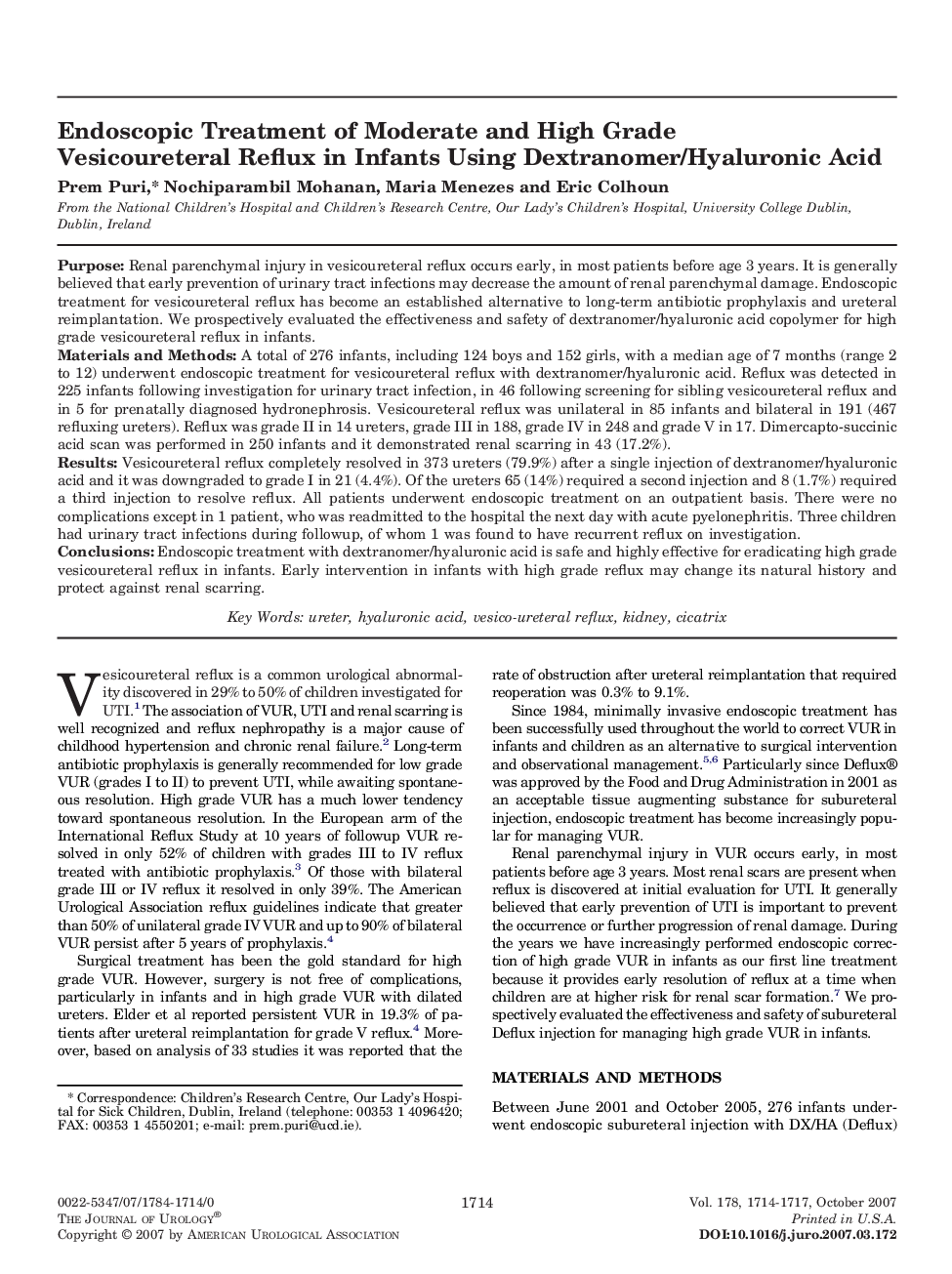| Article ID | Journal | Published Year | Pages | File Type |
|---|---|---|---|---|
| 3877047 | The Journal of Urology | 2007 | 4 Pages |
PurposeRenal parenchymal injury in vesicoureteral reflux occurs early, in most patients before age 3 years. It is generally believed that early prevention of urinary tract infections may decrease the amount of renal parenchymal damage. Endoscopic treatment for vesicoureteral reflux has become an established alternative to long-term antibiotic prophylaxis and ureteral reimplantation. We prospectively evaluated the effectiveness and safety of dextranomer/hyaluronic acid copolymer for high grade vesicoureteral reflux in infants.Materials and MethodsA total of 276 infants, including 124 boys and 152 girls, with a median age of 7 months (range 2 to 12) underwent endoscopic treatment for vesicoureteral reflux with dextranomer/hyaluronic acid. Reflux was detected in 225 infants following investigation for urinary tract infection, in 46 following screening for sibling vesicoureteral reflux and in 5 for prenatally diagnosed hydronephrosis. Vesicoureteral reflux was unilateral in 85 infants and bilateral in 191 (467 refluxing ureters). Reflux was grade II in 14 ureters, grade III in 188, grade IV in 248 and grade V in 17. Dimercapto-succinic acid scan was performed in 250 infants and it demonstrated renal scarring in 43 (17.2%).ResultsVesicoureteral reflux completely resolved in 373 ureters (79.9%) after a single injection of dextranomer/hyaluronic acid and it was downgraded to grade I in 21 (4.4%). Of the ureters 65 (14%) required a second injection and 8 (1.7%) required a third injection to resolve reflux. All patients underwent endoscopic treatment on an outpatient basis. There were no complications except in 1 patient, who was readmitted to the hospital the next day with acute pyelonephritis. Three children had urinary tract infections during followup, of whom 1 was found to have recurrent reflux on investigation.ConclusionsEndoscopic treatment with dextranomer/hyaluronic acid is safe and highly effective for eradicating high grade vesicoureteral reflux in infants. Early intervention in infants with high grade reflux may change its natural history and protect against renal scarring.
